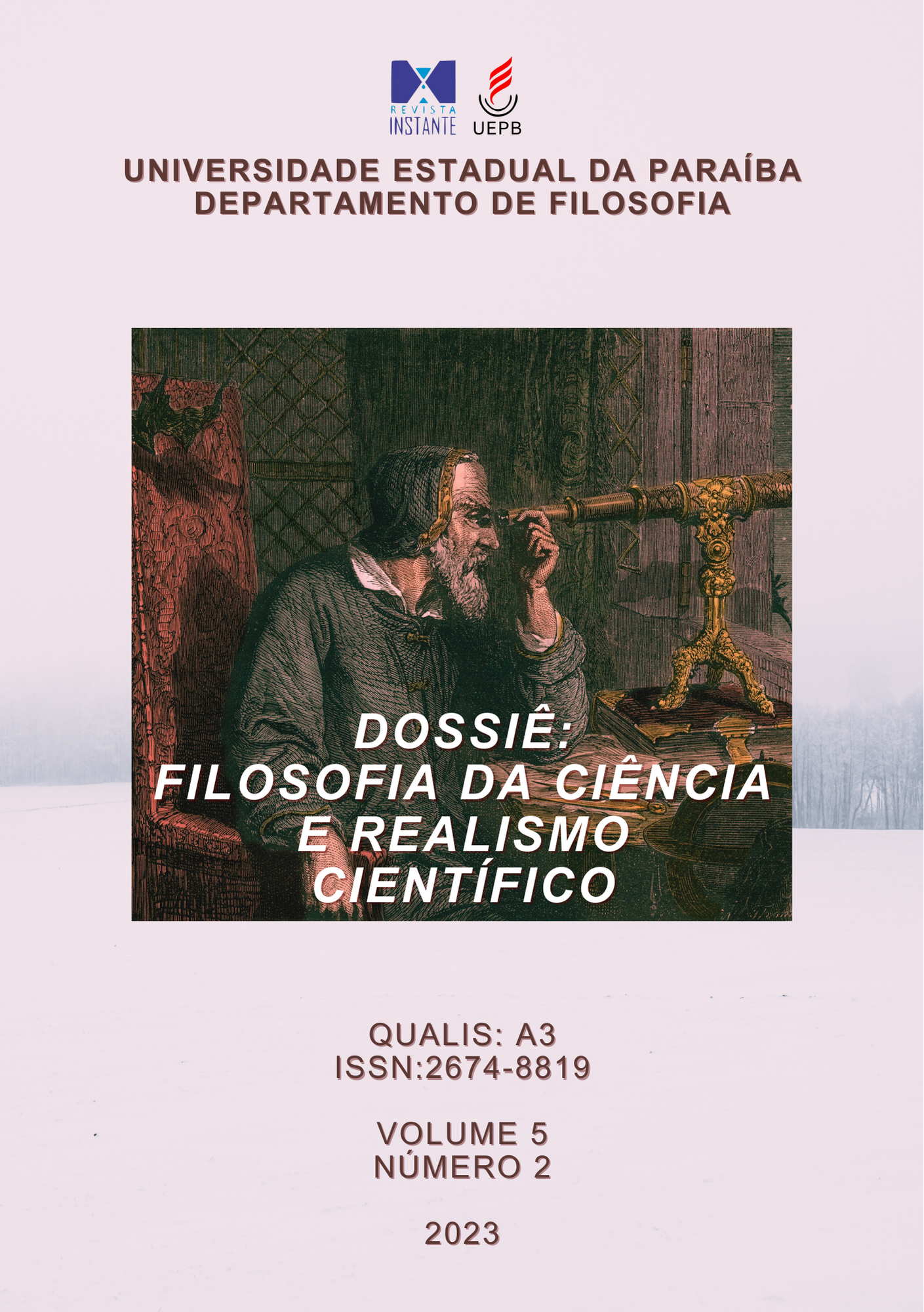KITCHER, VERDADE E SUCESSO PRÁTICO
Keywords:
Realismo Científico. Verdade. Correspondência. Sucesso Prático. Philip KitcherAbstract
Philip Kitcher’s defence of a theory of correspondence truth in the face of a deflationary alternative exposes his ability to explain systematically successful patterns of action. In cases of systematic success, these actions can be obtained from beliefs and desires as much as from effective relationships between means and ends. Kitcher argues that only his theory of truth explains why the same actions are fit in both cases. This article proposes a formalized reconstruction of this supposed explanatory power based on Kitcher’s indications. We argue that the explanations of these actions require a practical competence notion, which internalizes the difficulty pointed out in the deflationary theory.
References
HORWICH, Paul. Truth. 2nd. Ed. Oxford: Oxford University Press. HORWICH, Paul. Meaning. Oxford: Oxford University Press, 1999a [1999b].
KITCHER, Philip. The hegemony of molecular biology. Biology and Philosophy, v. 14, 1999, pp. 195-210.
__________. Real realism. In: KITCHER, P. (2012). Preludes to pragmatism. Oxford/New York: Oxford University Press, 2001a, pp. 70-109.
__________. Science, Truth, and Democracy. New York: Oxford University Press, 2001b.
__________. On the Explanatory Role of Correspondence Truth. In: KITCHER, P. (2012). Preludes to pragmatism. Oxford/New York: Oxford University Press, 2002, pp. 110-127.
__________. Second thoughts. In: GONZALEZ, Wenceslao J. (2011). Scientific realism and philosophy of sciences: The philosophy of Philip Kitcher. Amsterdam/New York: Rodopi, 2011, pp. 171-189.
__________. Pragmatism and realism: a modest proposal. In: KITCHER, P. (2012). Preludes to pragmatism. Oxford/New York: Oxford University Press, 2012, pp. 128-144.
LAUDAN, Larry. Science and values. The aims of science and their role in scientific debate. London: University of California Press, 1984.
LEVIN, Michael. What kind of explanation is truth? In: LEPLIN, J. (ed.) Scientific realism. Berkeley: University of California Press, 1984, pp. 124-139.
SCHWARTZBERG, Melissa; KITCHER, Philip (eds.). Truth and evidence. New York: NYU Press, 2021.
STANFORD, Kyle; KITCHER, Philip. Refining the causal theory of reference for natural kind terms. Philosophical Studies, v. 97, 2000, pp. 99–129.
WILLIAMS, Michael. Do we (epistemologists) need a theory of truth? Philosophical Topics, v. 14, 1986, pp. 223-242.










